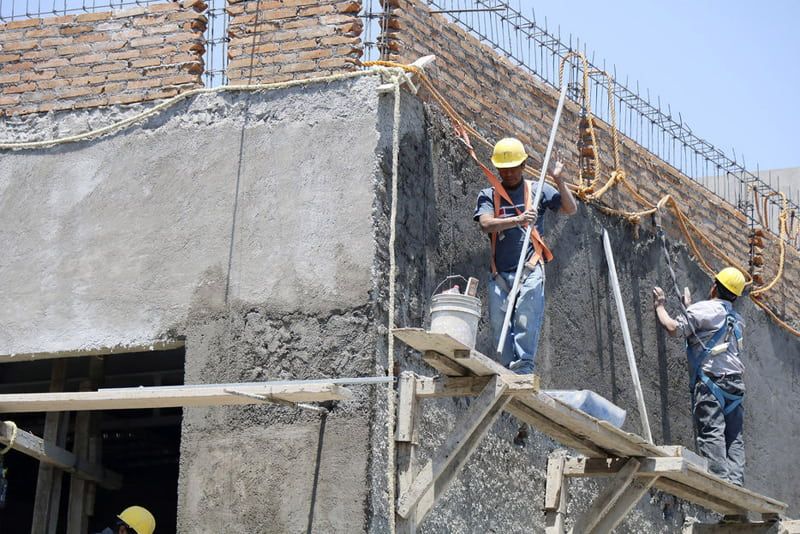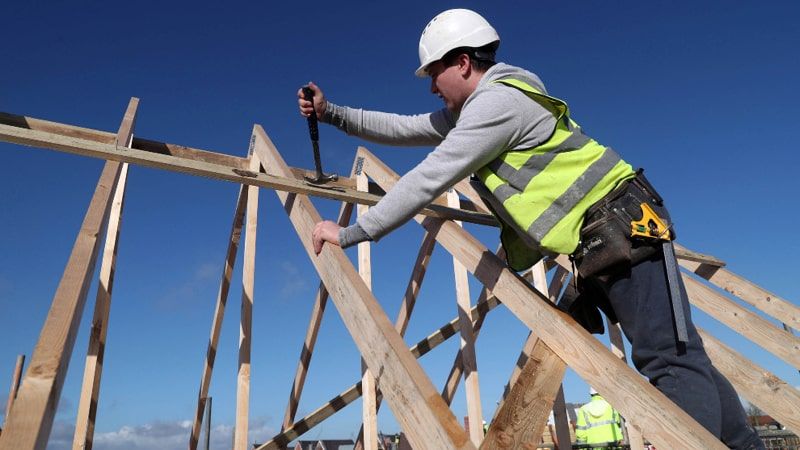May 3 is celebrated in Mexico as Construction Workers' Day
In most cases, masons, bricklayers, and craftsmen empirically acquire their knowledge. May 3 is celebrated in Mexico as Construction Workers' Day.

According to figures from the National Institute of Statistics and Geography, as of February 2022, there were 461,614 workers employed in the construction industry, who worked a total of 93,263 hours during the first two months of this year.
Their work is anonymous, they perform a rough job during long hours that, on some occasions, are poorly paid and without safety measures. In general, their occupation is temporary and it is uncommon for them to start with the foundations and continue until the finishing touches or the placement of the last detail, due to the specialization that each one may have.
Masons are the engine of the buildings, they are in charge of materializing the ideas that civil engineers and architects put on paper; they fulfill an important task in the works.
Based on information from Data Mexico (a platform that integrates, visualizes, and distributes public data, to improve decisions through information to identify economic, industrial, and commercial opportunities), in the fourth quarter of 2021, the labor force of bricklayers, masons, and related workers consisted of 1.61 million people: 99.9 percent men and 0.083 percent women.
Average wages for men were just over 6,000 pesos per month; for women, 1,300 pesos per month during the same period, for workdays of approximately 44 hours per week.
The best average salaries were recorded in Baja California Sur (12,900 pesos); Nayarit (10,200 pesos); and Sinaloa (more than 9,000 pesos). While the labor force was larger in the State of Mexico, with 185 thousand people; Jalisco, 136 thousand; and Veracruz, 112 thousand.

Elementary sector
On the occasion of Construction Workers' Day, which is celebrated on May 3, this workforce is in charge of building walls, foundations, arches, drains, etc., as well as processing interior and exterior finishes, in general, in buildings of one or several floors; they are the great craftsmen who give life to the projects.
On this date, work is suspended. In the morning they participate in a mass where they bless the wooden crosses that are adorned with flowers; later a meal is held in their workplace. This is the most important celebration for them.
Masonry is the skill of constructing buildings and other works, using, as the case may be, stones, bricks, lime, plaster, mortar, and other materials. They can work independently or under the orders of experts.
The construction sector is one of the most important in the development of a country since it provides basic elements of welfare to society by building schools and hospitals, among other infrastructures; in this sense, its members are an essential part of it.
It is a trade that requires experience and learning related to construction processes, the knowledge that most masons acquire empirically. Engineers and architects are in charge of supervising the works and, regularly, these workers know how to carry out the processes.
Many of them know how to read blueprints, something they have learned over time, in addition to their knowledge of materials and their quality; there is no need to train them, they already have certain knowledge that allows them to join the projects.
Due to the pandemic, many projects were halted, others were canceled, and there was also personnel who worked intermittently; all of this affected the construction sector and the masons.

Knowledge and experience
Most of them lack social security and economic benefits; construction companies are obliged to provide them with life insurance and medical services because they are prone to accidents that could be serious; only a certain percentage are contracted with these benefits.
Those who work on their own in smaller construction sites also face this situation. The authorities have not accurately regulated the companies to offer them these benefits. It is as if they were hired underwater; there are many irregularities.
There is currently a shortage of work in the formal construction sector, due to the decrease in projects, which means fewer sources of employment. In this context, she suggests a regulatory body that benefits them and considers them a fundamental part of the construction process.




